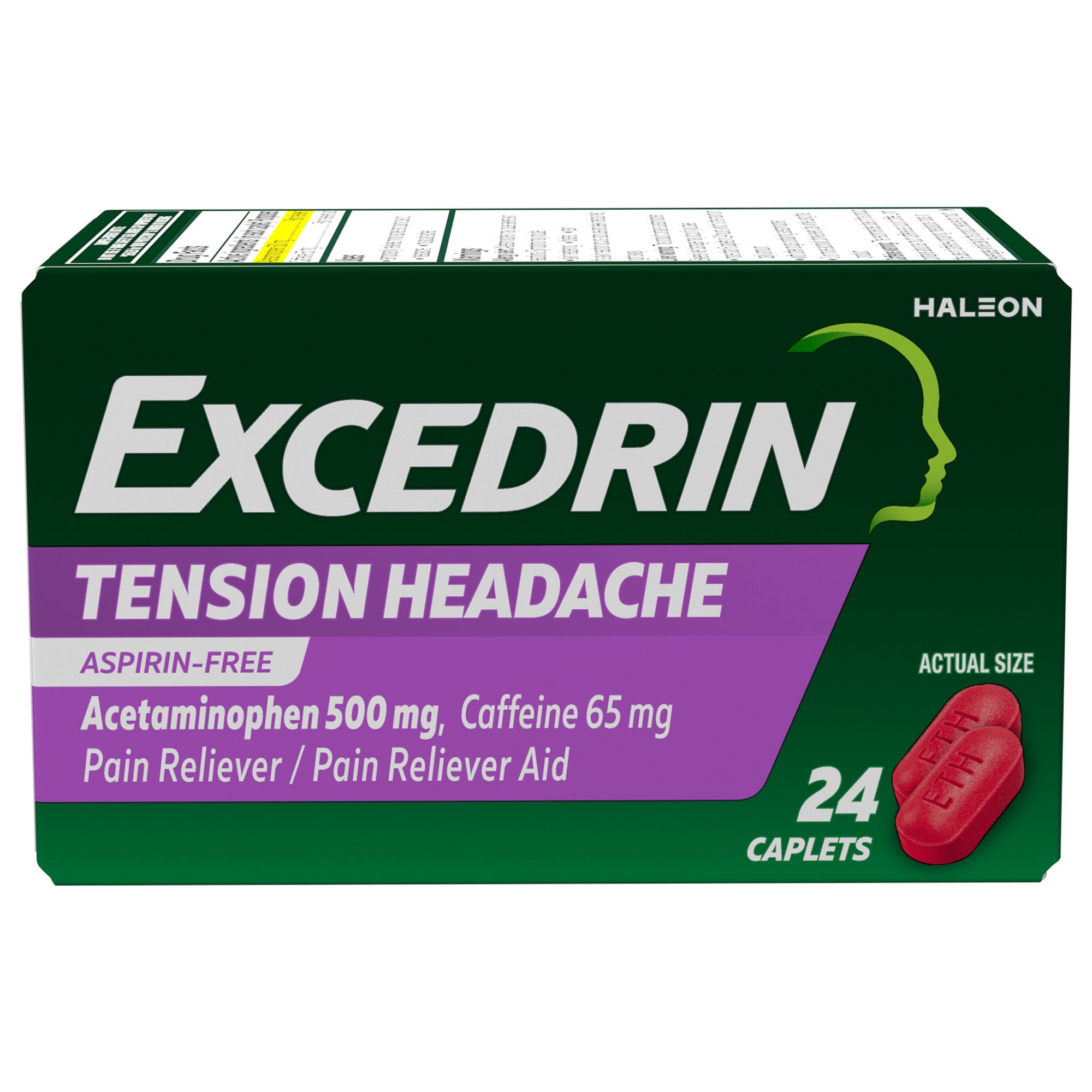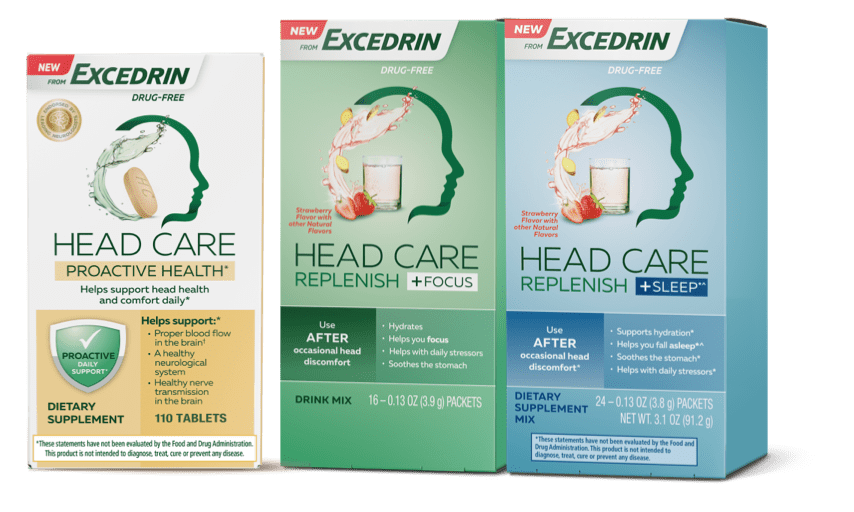Headache Sufferers Rejoice: Excedrin vs. Aleve - Find Your Perfect Fit
Headaches. They range from a mild annoyance to a debilitating experience that can completely derail your day. If you’re a frequent headache sufferer, you’ve likely explored over-the-counter (OTC) pain relievers. Two of the most popular contenders in the battle against head pain are Excedrin and Aleve. But which one is right for you? This comprehensive guide will break down the key differences, helping you understand the strengths and weaknesses of each medication to find the perfect fit for your individual needs.
Understanding the Enemy: Different Types of Headaches
Before diving into the specifics of Excedrin and Aleve, it’s important to acknowledge that not all headaches are created equal. The type of headache you experience can significantly impact which medication will be most effective. Common headache types include:
- Tension Headaches: Often described as a tight band around the head, these are the most common type.
- Migraines: Characterized by throbbing pain, often on one side of the head, and can be accompanied by nausea, vomiting, and sensitivity to light and sound.
- Cluster Headaches: Severe, recurring headaches that occur in clusters, often around the eye.
- Sinus Headaches: Caused by inflammation and pressure in the sinus cavities.
It’s crucial to identify the type of headache you’re experiencing to choose the most appropriate treatment. If your headaches are severe, frequent, or accompanied by other concerning symptoms, consult a doctor for a proper diagnosis and treatment plan.
Excedrin: The Multi-Ingredient Approach
Excedrin is a combination medication, meaning it contains multiple active ingredients designed to tackle headaches from different angles. The most common types of Excedrin are:
- Excedrin Migraine: This formulation typically contains:
- Acetaminophen (250 mg): A pain reliever that helps reduce fever and aches.
- Aspirin (250 mg): A nonsteroidal anti-inflammatory drug (NSAID) that reduces pain, inflammation, and fever.
- Caffeine (65 mg): A stimulant that can help constrict blood vessels and enhance the pain-relieving effects of the other ingredients.
- Excedrin Extra Strength: This formulation also contains:
- Acetaminophen (250 mg)
- Aspirin (250 mg)
- Caffeine (65 mg)
Key Benefits of Excedrin:
- Fast-Acting Relief: The combination of ingredients, particularly the caffeine, can provide rapid relief for some headache sufferers.
- Effective for Migraines: Excedrin Migraine is specifically formulated to address the complex symptoms of migraines.
- Can Address Multiple Headache Symptoms: The combination of pain relievers and caffeine can target both pain and associated symptoms like sensitivity to light.
Potential Drawbacks of Excedrin:
- Contains Aspirin: Aspirin can increase the risk of gastrointestinal bleeding and is not recommended for people with certain medical conditions, such as bleeding disorders or ulcers.
- Contains Caffeine: Caffeine can cause side effects like anxiety, insomnia, and increased heart rate, especially in sensitive individuals.
- Not Suitable for Everyone: Due to the aspirin and caffeine content, Excedrin may not be suitable for children, pregnant women, or people with certain medical conditions.
Aleve: The Power of a Single NSAID
Aleve, on the other hand, is a single-ingredient medication. The active ingredient is:
- Naproxen Sodium (220 mg): An NSAID that works by reducing inflammation and blocking pain signals.
Key Benefits of Aleve:
- Long-Lasting Relief: Aleve typically provides pain relief for up to 12 hours, offering sustained comfort throughout the day.
- Effective for Various Pain Conditions: Aleve is effective for a variety of pain conditions, including headaches, muscle aches, and menstrual cramps.
- Simpler Composition: As a single-ingredient medication, it may be a better choice for individuals who prefer to avoid combination drugs.
Potential Drawbacks of Aleve:
- Slower Onset: Compared to Excedrin, Aleve may take longer to provide pain relief.
- NSAID Risks: Like aspirin, naproxen sodium can increase the risk of gastrointestinal bleeding and is not suitable for everyone, particularly those with a history of ulcers or certain cardiovascular conditions.
- May Not Be as Effective for Migraines: While Aleve can relieve headache pain, it may not be as effective as Excedrin Migraine for the complex symptoms associated with migraines.
Excedrin vs. Aleve: A Side-by-Side Comparison
| Feature | Excedrin (Migraine/Extra Strength) | Aleve |
|---|---|---|
| Active Ingredients | Acetaminophen, Aspirin, Caffeine | Naproxen Sodium |
| Mechanism | Combination: Pain relief, anti-inflammatory, stimulant | NSAID: Reduces inflammation and blocks pain |
| Headache Types | Migraines, Tension Headaches | Various headaches, muscle aches, etc. |
| Speed of Relief | Faster | Slower |
| Duration of Relief | Varies, generally shorter than Aleve | Up to 12 hours |
| Potential Risks | Aspirin and Caffeine side effects, gastrointestinal bleeding risk | NSAID risks, gastrointestinal bleeding risk |
| Best For | Migraines, fast relief needs | Sustained relief, those avoiding caffeine |
Making the Right Choice: Considerations and Recommendations
The best medication for you depends on your individual needs and circumstances. Here’s a breakdown to help you decide:
- For Fast Relief and Migraines: Excedrin Migraine is often a good choice, especially if you experience migraines with multiple symptoms and need quick pain relief. However, consider the potential side effects of caffeine and aspirin.
- For Long-Lasting Relief and Avoiding Caffeine: Aleve is a solid option if you prefer sustained pain relief and want to avoid caffeine. It’s also a good choice for those who experience various types of headaches and other pain conditions.
- Consider Your Medical History: Always consult with your doctor or pharmacist, especially if you have any underlying health conditions, are taking other medications, or are pregnant or breastfeeding.
Important Note: Never exceed the recommended dosage for either medication. If your headaches are severe, frequent, or worsen despite taking OTC pain relievers, seek medical attention.
FAQs: Your Questions Answered
1. Can I take Excedrin and Aleve together?
It is generally not recommended to take Excedrin and Aleve simultaneously. Both contain NSAIDs (Aspirin and Naproxen Sodium, respectively), which can increase the risk of adverse effects like gastrointestinal bleeding. Always consult your doctor or pharmacist before combining medications.
2. Is Excedrin safe for daily use?
Excedrin, like any medication, should not be used daily without the guidance of a doctor. Frequent use can lead to medication overuse headaches and increase the risk of side effects.
3. Can I take Aleve if I’m pregnant?
Aleve (Naproxen Sodium) is generally not recommended during pregnancy, especially during the third trimester. Consult your doctor for safe pain relief options during pregnancy.
4. Does Excedrin work for sinus headaches?
Excedrin may provide some relief for sinus headaches due to its combination of ingredients. However, if you suspect a sinus infection, consult a doctor for proper diagnosis and treatment, which may include antibiotics.
5. How long can I take Aleve?
Aleve can be taken for short-term pain relief. If you need to take Aleve for more than a few days, consult with your doctor to ensure it is safe and appropriate for your condition.
Conclusion: Empowering Your Headache Management
Choosing between Excedrin and Aleve is a personal decision. By understanding the key differences, benefits, and potential risks of each medication, you can make an informed choice that best suits your needs. Remember to always prioritize your health by consulting with your doctor or pharmacist if you have any concerns or if your headaches persist or worsen. Armed with this information, you can take control of your headaches and find relief, allowing you to live your life to the fullest.




